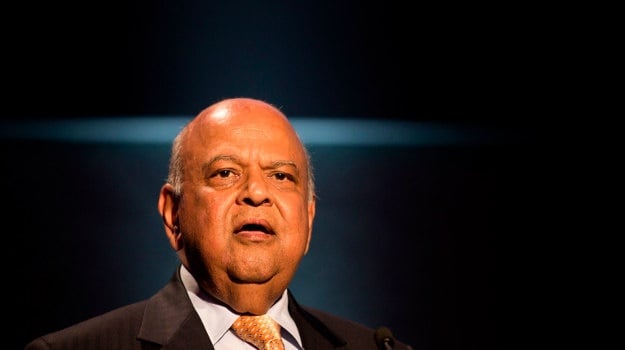
Pravin Gordhan. (Gulshan Khan, AFP, Getty Images)
Multimedia · User Galleries · News in Pictures Send us your pictures · Send us your stories

Pravin Gordhan. (Gulshan Khan, AFP, Getty Images)
Multimedia · User Galleries · News in Pictures Send us your pictures · Send us your stories
The initiatives and context of Eskom's newly appointed CEO must be made public, and the validity of proposed future actions and sustainability of associated costs must be open to scrutiny, writes Ghaleb Cachalia
Cosatu's proposal that the PIC, together with the Industrial Development Corporation and the Development Bank of South Africa take over Eskom’s debt represents an outrageous departure from the mandate and purpose of these institutions.
It is reflective of unwarranted overreach by the union.
It is financially irresponsible and will spread the net of contagion to financial and development finance institutions heralding the prospect of more bailouts and the impairment of value.
Minister Pravin Gordhan is reportedly in agreement with Cosatu's proposal to use over R200 billion of money managed by the Public Investment Corporation (PIC) to finance half of Eskom's escalating debt.
This is simply mind-boggling, coming from a former minister of finance and a current minister of public enterprises who should be well-versed in the death spiral of the utility under his aegis.
To propose to use pensions and squander funds earmarked for development to prop up a failed public enterprise should be dismissed out of hand.
Moreover, not one cent of public money from any source should be made available to Eskom in the absence of full transparency around past and present contracts and a fully-costed tabling of current and future operational and financial initiatives.
The bottom line is that South Africans should not be made to fund vested political interests that shore up Cosatu's alliance with the ANC and provide jobs for votes while the lights go down on the country.
There is scant visibility of any detailed plans to fix Eskom and government is now clutching at straws as it entertains Cosatu's frankly ludicrous proposal to use pension money to bail out the dysfunctional state-owned entity.
If the PIC approves this Cosatu-nominated R254 billion bailout to Eskom, state employee pensioners might as well write off their retirement benefits.
Given the levels of debt, the cost of restructuring, the legacy of graft and the unwillingness to open the books up to public scrutiny which continue to mask waste, folly and corruption, the utility is destined to drain the fiscus and imperil the hard-earned savings of South Africans.
It is deeply concerning that Cosatu, as an ostensible guarantor of workers’ interests, is proposing to use the savings of millions of workers to bail out the ANC and reward if for the mismanagement of SOEs. How government is able to even contemplate such an unethical proposal, is beyond the pale.
Furthermore, the initiatives and context of Eskom's newly appointed CEO must be made public, and the validity of proposed future actions and sustainability of associated costs must be open to scrutiny.
If these strategies are unable to pass muster, Eskom must be broken up and privatised, allowing free competition in the sector.
South Africans need to be free to make their own energy choices around generation and supply into the grid. It's time to return power to the people.
If the initiatives are met with more than a semblance of approval by financial markets and expert opinion, then measures such as building an institutional framework that allows for a fully independent regulator, improving the operational efficiency of the utility (by un-bundling vertically-integrated utilities), creating an environment for private sector participation, and addressing tariffs that reflect costs, can be rolled out.
All these measures are designed with one goal in mind: to put the sector on a sustainable path and improve the quality of service for end-users.
It's not about the health of the particular SOE per se; it's about the health of the sector and hare-brained schemes that increase risk without addressing broader issues around sustainability must be called out for what they are - exercises in gross irresponsibility.
The tri-partite alliance that governs our country and its SOEs via the president and his minister had best come to terms with this. We cannot allow South Africa to be loadshed into bankruptcy.
- Ghaleb Cachalia is an MP and DA spokesperson on Public Enterprises